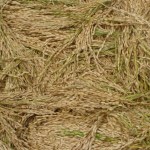agricultual policy
A Presidential committee today released a report calling on the Federal Government to launch a coordinated effort to boost American agricultural science by increasing public investments.
The report was initiated at the request of Catherine Woteki, the Undersecretary for Research, Education, and Economics, and Roger Beachy, former Director of the National Institute for Food and Agriculture.
The report has several interesting observations and important recommendations that, if implemented, would enhance the competitiveness and sustainability of US and global agriculture.
Their…
Tomorrows Table: What does GMO really mean?
For years, journalists, television producers and newspaper reporters that write about genetically engineered crops, have used the term “GMO” (genetically modified organism) to describe these new crop varieties. The marketing industry has taken to writing “GMO-free” on their products, as a way to increase sales to consumers fearful of the genetic engineering process.The problem is that the term GMO is misused and misunderstood.Take, for example, a recent story on Voice of America about a newly developed rice variety that is…
The Tech Awards, presented by Applied Materials, honors individuals, non-profit organizations and for-profit companies who are using technology to significantly improve human conditions in 6 awards categories.
The technology used can be either a new invention or an innovative use of an existing technology.
NBC will be livestreaming the awards ceremony tonight from the Santa Clara Convention center.
http://www.nbcbayarea.com/on-air/as-seen-on/The-Tech-Awards-2012-177952…
This year's categories are: Environment, Education, Young Innovator, Health, Economic Development, and Sustainable Energy.…
A story by Guest Blogger Kay Watt
Rice steamed in the husk and left to dry, then threshed is one of the subtle specialties of the region.
In Panama the rainy season lasts most of the year. Rivers flood, runoff pours down hillsides, and the red clay roads become impassable. Horses strain forward against thick mud rising almost to their chests, soaked riders urging them on. The village of Limón, 300 people and a two-room school house, both depend on and fight against the rain. The small town grew up near a river that used to serve as transportation to the coast…
ScienceDebate 2012 | The Questions.
"Whenever the people are well-informed," Thomas Jefferson wrote, "they can be trusted with their own government."
Science now affects every aspect of life and is an increasingly important topic in national policymaking.
ScienceDebate.org invited thousands of scientists, engineers and concerned citizens to submit what they felt were the the most important science questions facing the nation that the candidates for president should be debating on the campaign trail.
ScienceDebate then worked with the leading US science and engineering organizations listed at…
Why labeling of GMOs is actually bad for people and the environment « The Berkeley Blog.
This is a very balanced and knowledge-based post by the widely respected agricultural economist, David Zilberman. Thankfully, he brings some science to this hot topic. It is an important read for everyone in California who votes as we will soon have an initiative on GMO Labeling on our ballot.
One small point. Professor Zilberman indicates "Now, what about emergence of resistance to GMOs? '
Actually, the resistance is to the herbicide that is sprayed on the GMO. The more people plant…
It seems that plant biologists just cant take the misinformation about genetics any longer. First we had the moving and informative video from the Rothamsted Research Group and now an elqouent article from two professors from Swedish agricultural university. You can read their story here: ”Populistisk miljörörelse demoniserar gentekniken” - DN.SE.
Is the tide turning in Europe? Are consumers now able to more easily access knowledge-based information on genetically engineered crops? Can we finally move on from from talking about how the seed was made and instead focus on…
Conservation Remix was an event with a mission—to foster creative thinking about the big environmental issues of our time. The organizers aimed to broaden the definition of what it means to be “green”. For one thought-provoking day, innovators in diverse fields connected science, engineering, business, architecture, and design to peer ahead to a sustainable future. At Conservation Remix, last saturday in Seattle, we heard from inspiring, thoughtful, and remarkable people about ideas that can truly change the world.
Cassandra Profita and I were two of the many people Tweeting at …
Thai Youth Seek a Fortune Away From the Farm - NYTimes.com.
Here is a link to a an interesting new book by Julia Gordon. She just graduated from Washington University in St Louis as a graphic design major, and for her senior thesis she designed an informational book, using the chapter "Green Genes" from Stewart Brand's book "Whole Earth Discipline". For this project she used his text as the body for the book, and created additional images, graphics, maps, captions and footnotes to accompany the text.
When given the assignment to design an informational book for her thesis, she was excited to base it on Green Genes because she found it "eye…
Just read some of the comments on Amy Harmon's #GMO labeling story from Friday's NYT. Guess people care about this topic.
Here are some excerpts:
"Unless you are foraging, eating wild-berries, game, etc... then you are consuming GMO food. There is no logical definition of #GMO food"
"Conservatives deny data on global warming; Liberals deny data on #GMO safety Each side discards reason when it doesn't suit their politics"
"The FDA should require stringent testing of GMO products and label only those found to be harmful"
"You think you have pesticides being applied now? Wait until the demise of…
A paper in this week's issue of Nature and a commentary on Revkin's DotEarth blog reinforces the argument that a hybrid path in agriculture -- incorporating both conventional and organic production practices -- gives the best chance of feeding some 9 billion people by midcentury in an ecologically-based manner.
The thoughtful and comprehensive study compares yields in organic and conventional systems and addresses the criticisms of an earlier study by Badgley et al (for problems with the earlier study, see the supplementary discussion in Seufert et al).
The organic agriculture movement has…
Another vigilante for truth. Lithodid man exposes Jeffrey Smith #antiGMO fraud in this entertaining video. Well done Lithodid.
Another vigilante for truth. Lithodid man exposes Jeffrey Smith #antiGMO claims to light of day in this entertaining video. Well done Lithodid.
Strawberries are a particularly pest prone crop.
To control these pests, more than 9.5 million pounds of pesticides, including over 3 million pounds of methyl bromide, a toxic ozone-depleting chemical is applied each year. Methyl bromide is also associated with an increased risk of prostate cancer in farm workers.
We all like strawberries, but this pesticide use seems excessive: more pounds of pesticides were applied to 28,000 acres of strawberries than to 780,000 acres of cotton (and cotton is one of the world's most pesticide intensive crops).
To avoid contributing to the use of methyl…
Today I am in NYC participating in the "Food Dialogues", a discussion with farmers and ranchers in four US locations about food and farming. The program is sponsored by the US farmers and ranchers alliance.
Right now Secretary Vilsack is speaking with host Claire Shipman. He says "diversity makes sense..we need all kinds of agriculture (big, small, conventional, organic) to drive the rural economy. We need to try to figure out how to help all aspects of agriculture because agriculture helps all of us."
In an hour the NYC panel will answer questions about consumer issues.
Tune in to ask…
Generalizing about "GMOs" is almost completely useless. Each food we eat and each farm is so different that the genetic technologies and farming practices needed to optimize sustainability must be different too. That is why each crop (GE or conventional) must be looked at on a case-by-case basis, using science-based evidence.
I recently wrote a short Scientific American guest blog post for their "Passions of Food" day examining how cotton genetically engineered to express the organic protein Bt is affecting agriculture today. Thanks to Bora Zivkovic, former ScienceBlogger, for this…
This week, the G20 Agriculture Ministers gathered for their first-ever meeting to discuss potential measures to address price volatility and record high food prices. The key to any long-term solution is acknowledging that we need to empower the very people whose lives are most affected by food shortages. Three-quarters of the world's poorest people get their food and income by farming small plots of land. The potential of small farmers for getting us out of this and future food crises cannot be overstated.
Today, we find that millions of lives depend upon the extent to which agricultural…
The journalist Marc Gunther recently posted a thoughtful article discussing public perceptions of the role of organic agriculture in a future sustainable food system.
He found that many consumers believe that there are only two ways to produce food:
"The first can be described, depending upon who's talking, as big, fast, modern, conventional, industrial, intensive, chemical, genetically-modified, processed and global. It's the system that delivers most of the food that most Americans eat."
"The second is described as organic, sustainable, local, small-scale, family-owned, natural, agro-…
Guest Post: Dr. Robert L. Thompson is a senior fellow for The Chicago Council on Global Affairs and professor emeritus at the University of Illinois at Urbana-Champaign
Over the past few months, we've watched as governments have been overthrown in Tunisia and Egypt, as governments across North Africa and the Middle East promised reforms, some even handing out cash to pacify angry citizens, and as demonstrations in Libya intensified into outright civil war. Although a number of issues have come to a head, one constant across countries is the rocketing prices of basic commodities, and the…


